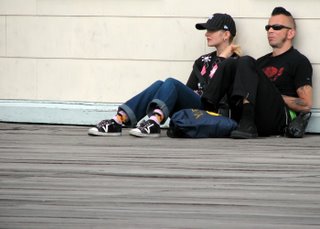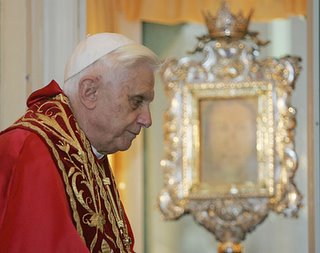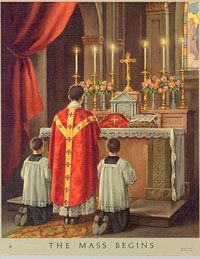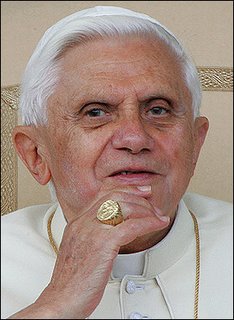At his visit yesterday to the supposed home of the Virgin Mary, he prayed in Turkish. During his trip today to the Blue Mosque, he took noff his shoes and spent a minute in "meditation." Also, according to NCR
In a divine liturgy celebrated today at the Phanar, the headquarters of the Patriarch of Constantinople, Pope Benedict XVI pledged that “the Catholic Church is ready to do everything possible” to promote unity between the 250 million Orthodox believers in the world and the roughly 1.1 billion Roman Catholics.
While the seeming sounds of nrotherhood and unity sound terrific, it's an open question this sounds to a group that equates promises of "unity" with assimilation and disappeaance.
As far as the world of Islam is concerned, what need does it have to cionciliate with its ancient foe? Catholicism, for all its putative numerical strength, is terribly weak. The ancient traditiuons of celibacy, opposition to female leadership and opposition to birth control have strained the Church's intellectual vitality and credibility to the breaking point. The cclergy sex abusse scandals, as well as old scandals that are just coming to light, is sapping the Church's moral authority and claim to divine protection.
Benedict is also still banging on the drum of Europe's all-but-lost Catholic heritage. In a common declaration with the Patriarch of Constantinople, he said,
“The process of secularization has weakened the hold of that tradition,” he said.
“Indeed, it is being called into question, and even rejected. In the face of this reality, we are called, together with all Christian communities, to renew Europe’s awareness of its Christian roots, traditions and values, giving them new vitality....In Europe, while remaining open to other religions and to their cultural contributions, we must unite our efforts to preserve Christian roots, traditions and values, to ensure respect for history,”
What this might mean in realistic terms is anyone's guess -- anything on the spectrum from benign tolerance to legislating benefits to Catholic to out-and-out crusade are possible. Without specific goals, such high-fflying rhetoric is all but meaningless.
The Church should reach out to other Chriotian sects and to non-Christians. But the Church cannot simultaneously ask for unity while maintaining the very teachings, practices and attiutudes that caused the splits in the first place. Insisting on Roman primacy over all Christians, insisting on unmarried clergy and insisting on an intellectually dishonest retention of the ban on birth ccontrol and female priesthood will do nothing to attract lapsed Catholics- not to mention sects whose beliefs and traditions are furtther afield.
Without the kind of creativity and flexibility that ewas never on display when Pope Benedict was Cardinal Ratzinger, there's little hope that this latest trip will be nothing more than a photo op, and an opportunity to fill coffee table books with pretty and irrelevant pictures.















